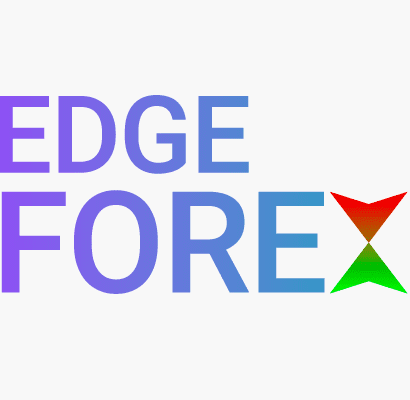How to Start Forex Trading? A Comprehensive Guide for Beginners

Written by
in
Forex trading has become a popular choice for individuals looking to grow their wealth. It involves trading currencies in the global forex market, the largest financial market in the world. Unlike stocks, forex trading operates 24/5, allowing traders to buy and sell currencies anytime.
Forex trading offers opportunities for profit, but it also comes with risks. To succeed, beginners must understand the basics and develop a solid plan. Let’s explore how to start forex trading and navigate the forex market effectively.
Understanding the Forex Market
The forex market facilitates the exchange of currencies. It is decentralized, meaning no single institution controls it. Instead, it operates through a global network of banks, brokers, and traders.
For example, a U.S. traveler heading to Europe exchanges dollars for euros at a forex exchange rate. This simple transaction reflects the larger forex market’s mechanics, where participants trade trillions of dollars daily.
Key participants include central banks, commercial banks, hedge funds, and retail traders. Major currency pairs like EUR/USD and USD/JPY dominate trading due to their liquidity and stability. Understanding these basics is crucial for beginners.
How to Start Forex Trading Step-by-Step?
Starting forex trading is straightforward when you follow these steps:
- Choose a Forex Broker: Select a reliable broker offering low spreads, fast execution, and robust trading platforms. Research reviews to ensure credibility.
- Set Up a Forex Trading Account: Open an account by providing your details and verifying your identity. Many brokers offer demo accounts for practice.
- Complete KYC Verification: Submit identification and address proof to comply with regulations. This step ensures security and transparency.
- Fund Your Forex Account: Deposit funds into your account using bank transfers, cards, or e-wallets. Start with an amount you can afford to lose.
For instance, if you open an account with $1,000, consider trading only 1-2% of your capital per trade to minimize risk. Follow these steps carefully to build a solid foundation.
Essential Forex Trading Strategies
Strategies guide your decision-making process. They help you navigate market volatility and improve profitability.
- Day Trading: Traders open and close positions within a single day, aiming to profit from small price movements. It requires discipline and quick decision-making.
- Swing Trading: Positions are held for several days to capitalize on market swings. It suits traders who prefer less frequent, more calculated trades.
- Risk Management: Never risk more than 1-2% of your account balance on a single trade. Use stop-loss orders to limit potential losses.
For example, a trader might set a stop-loss at 50 pips below the entry price. This ensures losses are controlled even if the market moves unexpectedly.
Tools and Resources for Forex Beginners
Starting with the right tools and resources can boost your trading journey. Here are essentials every beginner needs:
- Platforms: Platforms like us at Edge Forex provide charts, analysis tools, and trade execution. They are beginner-friendly and widely used.
- Educational Resources: Use books, blogs, and online courses to build your knowledge. For example, “Trading in the Zone” by Mark Douglas is an excellent read for understanding market psychology.
- Demo Accounts: Practice on a demo account before trading real money. This helps you familiarize yourself with the platform and test strategies without financial risk.
By utilizing these tools, you can build confidence and avoid costly mistakes.
Common Challenges in Forex Trading
It has challenges that can discourage beginners. Identifying and addressing them early is vital.
- Overtrading: Trading too frequently increases risk and leads to emotional decisions. Stick to your strategy and avoid unnecessary trades.
- Lack of Planning: Entering the market without a strategy often results in losses. Develop a clear plan, including entry and exit points.
- Market Volatility: Sudden price changes can disrupt trades. Monitor economic news and use risk management tools to protect your capital.
For example, a beginner trader might face losses after ignoring a major news event like a central bank announcement. Staying informed can help you navigate such challenges.
Forex Trading Tips for Beginners
Here are actionable tips to help beginners succeed:
- Start with a small investment and increase gradually as you gain experience.
- Focus on one or two currency pairs initially to understand their behavior.
- Use leverage cautiously. High leverage amplifies both gains and losses.
- Keep a trading journal to analyze past trades and improve.
For instance, tracking your trades may reveal that you perform better during specific market conditions. Use this insight to refine your approach.
FAQs About Forex Trading
- What is the minimum amount to start forex trading? You can start with as little as $50, but $500-$1,000 is recommended for flexibility.
- Is forex trading suitable for beginners? Yes, with proper education and discipline, beginners can succeed.
- How much can I earn from trading? Earnings vary depending on experience, strategy, and market conditions. Avoid expecting instant profits.
Conclusion
Forex trading offers a pathway to financial growth, but success requires preparation. By understanding the forex market, developing strategies, and managing risks, you can achieve your trading goals. Start small, stay disciplined, and continually educate yourself to excel in the exciting world of forex trading.
Click here to read our latest article Master the Shift: From Self-Trading to Managed Forex Accounts
This post is originally published on EDGE-FOREX.
